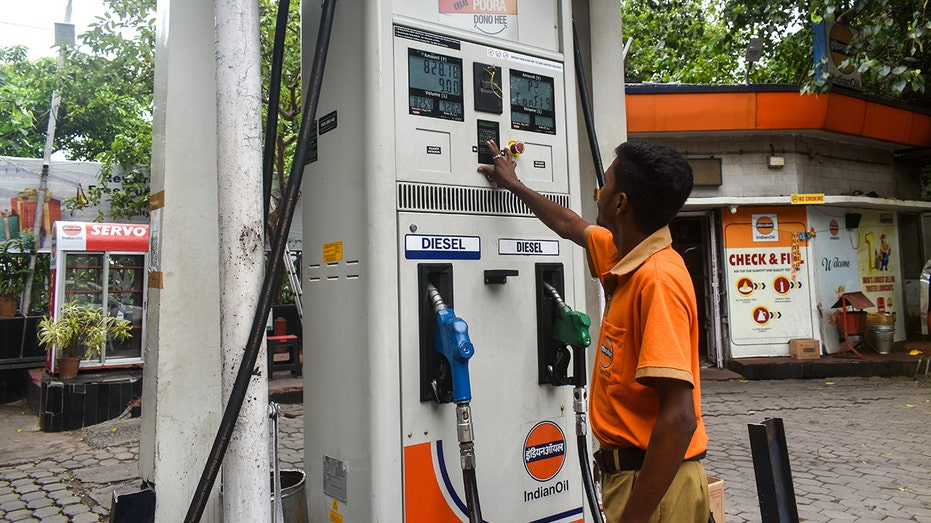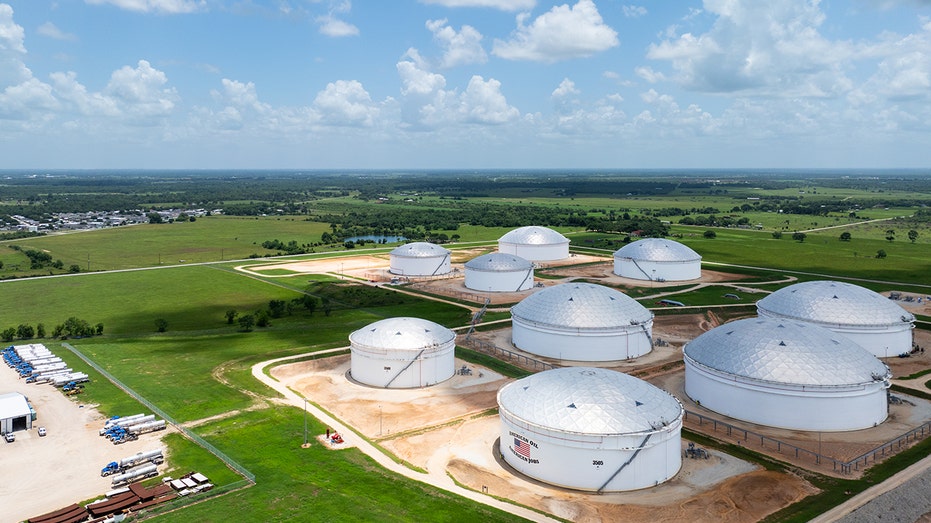
FOX Business host Liz Claman breaks down the impact on the oil markets and consumers amid escalating tensions in the Middle East and the U.S.’ bombing of Iranian nuclear facilities.
The global oil market is a point of major focus after the U.S. attacked three key Iranian nuclear sites on Saturday night.
Oil prices are expected to rise following what President Donald Trump called « a spectacular military success » in which, he said, Iran’s nuclear enrichment facilities had been « obliterated. » Trump also said the U.S. military could go after other targets in Iran if the country did not agree to peace.
Saul Kavonic, a senior energy analyst at equity research firm MST Marquee in Sydney, told Reuters the more likely scenario would see Iran respond by targeting American interests in the Middle East, including Gulf oil infrastructure in places such as Iraq or harassing ship passages through the Strait of Hormuz.
The Strait of Hormuz lies between Oman and Iran and is the primary export route for oil producers such as Saudi Arabia, the United Arab Emirates, Iraq and Kuwait. It is considered one of the world’s most important oil chokepoints, according to the Energy Information Administration (EIA).
EXXONMOBIL CEO TALKS OIL SUPPLY AMID IRAN-ISRAEL CONFLICT

A worker adjusts the meter at a fuel station in Kolkata, India, on June 15, 2025. (Sudipta Das/NurPhoto / Getty Images)
« Much depends on how Iran responds in the coming hours and days, but this could set us on a path towards $100 oil if Iran respond[s] as they have previously threatened to, » Kavonic said.
Just days ago, industry experts said if the escalating conflict between Israel and Iran threatens a critical shipping route and significantly cuts global oil supplies, prices could surge to as much as $120 a barrel.
OIL, GOLD JUMP, STOCKS SINK AS ISRAEL PUMMELS IRAN

A fuel station staff member inserts a nozzle into a car in Kolkata, India, on June 15, 2025. (Sudipta Das/NurPhoto / Getty Images)
On Friday, sanctions were issued « against Iran-backed Ansarallah, commonly known as the Houthis, targeting four individuals, 12 entities, and two vessels that have imported oil and other illicit goods in support of the terrorist group, » the U.S. Department of the Treasury’s Office of Foreign Assets Control (OFAC) said in a press release.
« The Houthis rely on a series of front companies and trusted facilitators to clandestinely generate revenue, procure weapons components, and advance their reign of terror in partnership with the Iranian regime, » Deputy Secretary of the Treasury Michael Faulkender said in a statement.

In an aerial view, oil storage tanks are seen at the Enterprise Sealy Station on June 19, 2025 in Sealy, Texas. (Brandon Bell / Getty Images)
CLICK HERE TO READ MORE ON FOX BUSINESS
« Today’s action—our most significant to date against the group—underscores our commitment to disrupting the Houthis’ financial and shipping pipelines that enable their reckless behavior in the Red Sea and the surrounding region. »
FOX Business’ Danielle Genovese and Reuters contributed to this report.
